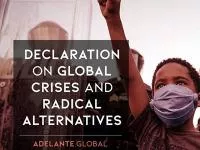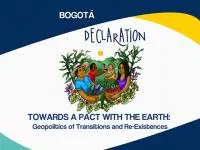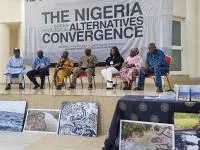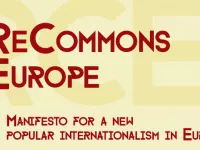GD 14.3 - December 2024
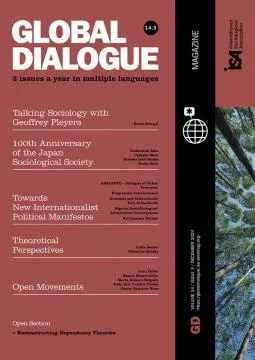
Global Dialogue is available in multiple languages!
Select the language to download the issue.
Editors:
Breno Bringel.
Assistant Editors:
Vitória Gonzalez, Carolina Vestena.
Associate Editor:
Christopher Evans.
Managing Editors:
Lola Busuttil, August Bagà.
Consultants:
Michael Burawoy, Brigitte Aulenbacher, Klaus Dörre.
REGIONAL EDITORS
Arab World: (Lebanon) Sari Hanafi, (Tunisia) Fatima Radhouani, Safouane Trabelsi.
Argentina: Magdalena Lemus, Juan Parcio, Dante Marchissio.
Bangladesh: Habibul Khondker, Khairul Chowdhury, Bijoy Krishna Banik, Shaikh Mohammad Kais, Abdur Rashid, Mohammed Jahirul Islam, Rasel Hussain, Md. Shahidul Islam, Helal Uddin, Masudur Rahman, Yasmin Sultana, Ruma Parvin, Rashed Hossain, Ekramul Kabir Rana, Farheen Akter Bhuian, Khadiza Khatun, Arifur Rahaman, Md. Shahin Aktar, Suraiya Akhter, Alamgir Kabir, Taslima Nasrin.
Brazil: Fabrício Maciel, Andreza Galli, José Guirado Neto, Jéssica Mazzini Mendes, Ricardo Nóbrega.
France/Spain: Lola Busuttil.
India: Rashmi Jain, Manish Yadav.
Iran: Reyhaneh Javadi, Niayesh Dolati, Elham Shushtarizade, Ali Ragheb.
Poland: Aleksandra Biernacka, Anna Turner, Joanna Bednarek, Sebastian Sosnowski.
Romania: Raluca Popescu, Raisa-Gabriela Zamfirescu, Bianca Elena Mihăilă.
Russia: Elena Zdravomyslova, Daria Kholodova.
Taiwan: WanJu Lee, Yun-Hsuan Chou, Zhi Hao Kerk, Chien-Ying Chien, Yi-Shuo Huang, Mark Yi-Wei Lai, Yun-Jou Lin, Tao-Yung Lu, Ni Lee.
Turkey: Gül Çorbacıoğlu, Irmak Evren.
GD 14.3 - December 2024
Editorial
This issue of Global Dialogue opens with an interview with Geoffrey Pleyers, current president of the ISA, elected at the XX ISA World Congress of Sociology in Melbourne. In in our regular “Talking Sociology” section, Pleyers shares some of his contributions to the study of social movements, his views on global sociology, and his perspectives about the contemporary world and the role of sociology.
The first thematic section celebrates 100 years of the Japan Sociological Society. Its president Yoshimichi Sato and several members of its board of directors trace the different stages of Japanese sociology vis-à-vis the institutionalization of the Japan Sociological Society. Special emphasis is placed on global connections, recent trends in Japanese sociology, and internationalization.
The second thematic section is devoted to contemporary political manifestos. Manifestos are collective tools widely used to position ideas or programs publicly. They can be understood as gauges of the present, often combining the diagnosis of historical and critical junctures, the interpretation of socio-political reality, and the search for alternatives. In a time of profound civilizational malaise and a crisis of alternative projects, this section brings together five internationalist political manifestos that seek to offer proposals and horizons for social and political change. Some are more global, while others are more regional, focusing on African, Latin American, and European cases. All suggest both possible paths for reorganizing popular mobilization processes and relevant short- and medium-term agendas.
The theoretical article, written by Lidia Becker and Christine Hatzky, starts from a provocative diagnosis: in recent decades, different branches of social theory (such as postcolonial and gender studies) have largely explored categories of difference but have neglected the recognition of similarities. In line with recent debates on pluriversity and new ontologies, the authors attempt to design a research agenda considering interconnectivity, convergences, analogies, and simultaneities to advance a relational concept of similarity.
The “Open Movements” section addresses two highly topical issues: on the one hand, the recent protests against two authoritarian governments (in Bangladesh and Venezuela) and their respective outcomes; on the other hand, the relationship between the ongoing genocide in Palestine and global climate justice. The section also includes an assessment of the transformations of social movements in Spain over the last two decades. Finally, the “Open Section” discusses the importance of intellectually reconstructing dependency theories, revisiting their roots, and updating their contributions.
We hope you have enjoyed this year’s three issues. In 2025, Global Dialogue will celebrate its fifteenth anniversary. It will be a unique opportunity to take stock of the state of public and global sociology and strengthen links between initiatives based in different world regions.
Breno Bringel, editor of Global Dialogue
Global Dialogue can be found in multiple languages.
Submissions should be sent to globaldialogue@isa-sociology.org.






